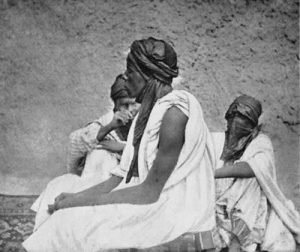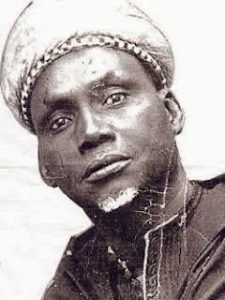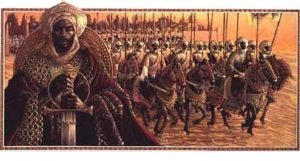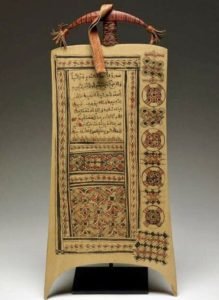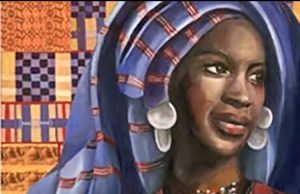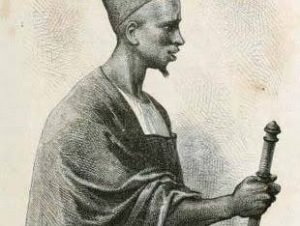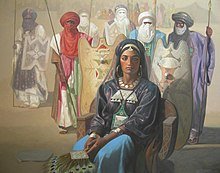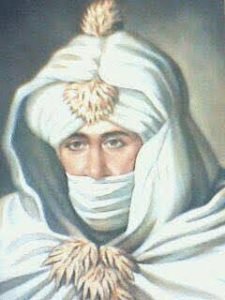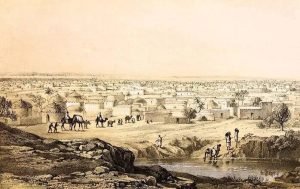Usman dan Fodio was a Fulani scholar, Islamic religious teacher, revolutionary and a philosopher who founded the Sokoto Caliphate and ruled as its first caliph in the early 19th century. He was born in 1754 in Gobir, a Hausa state in present-day Nigeria, and belonged to the Torodbe clan of urbanized Fulani people.
He received a thorough education in Islamic studies and became a respected teacher and preacher. He was also initiated into the Qadiri Sufi order by his mentor Jibril ibn Umar, a radical reformist.
Usman dan Fodio was dissatisfied with the corruption, oppression and paganism of the Hausa rulers, whom he accused of violating the standards of the Sharia. He also advocated for the rights and dignity of the Fulani pastoralists, who were often marginalized and exploited by the Hausa elites. He developed a critique of the existing African Muslim society and called for a revival and purification of Islam. He gained a large following of Muslims who looked up to him for religious and political guidance.
In 1804, he declared a jihad (holy war) against the Hausa kings, who tried to suppress his movement. He mobilized his followers, mostly Fulani but also some Hausa, into a well-organized army that fought under the banner of Islam.
He conquered most of northern Nigeria and parts of neighboring countries, establishing the Sokoto Caliphate, which became one of the largest and most influential empires in West Africa. He also inspired other jihads in the region, such as those led by Seku Amadu in Massina and Omar Saidou Tall in Toucouleur.
Usman dan Fodio was not interested in worldly power or pomp. He delegated the administration of the caliphate to his son Muhammad Bello, who succeeded him as caliph in 1817, and his brother Abdullahi, who became the emir of Gwandu. He retired to Sokoto, where he devoted himself to writing and teaching until his death in 1817.
He wrote more than a hundred books on various topics, such as theology, law, history, politics, ethics and poetry. He also encouraged literacy and scholarship among both men and women, and some of his daughters became renowned scholars and writers themselves.
Some of his notable followers were:
His younger brother Abdullahi dan Fodio, who became the emir of Gwandu and a prolific writer on Islamic law, history and politics. He also led the jihad in the western regions of the caliphate.
His son Muhammad Bello, who succeeded him as the second caliph of Sokoto and a renowned scholar and administrator. He expanded and consolidated the caliphate and wrote many books on various subjects.
His daughter Nana Asma’u, who was a poet, teacher, scholar and leader of women. She composed poems in Arabic, Fulfulde and Hausa to spread the teachings of her father and brother. She also founded a network of female teachers who educated women in the caliphate.
His grandson Atiku na Raba, who was a scholar, poet and diplomat. He served as the chief secretary of Sokoto and the ambassador to the Bornu empire. He wrote many poems in praise of his grandfather and other leaders of the jihad.
His disciple Seku Amadu, who was a Fulani cleric and jihadist. He founded the Massina empire in present-day Mali after leading a successful jihad against the Bambara kingdom of Segu. He was influenced by Usman dan Fodio’s teachings and writings.
Some of his notable opponents were:
The Hausa kings, especially Yunfa of Gobir and Nafata of Kano, who resisted his reformist movement and tried to suppress his followers. They were defeated by Usman dan Fodio’s army and deposed from their thrones.
The Tuareg confederation of Azna, who opposed his expansion into their territories in the central Sahara. They fought several battles with his forces but were eventually subdued.
The Bornu empire, led by Muhammad al-Kanemi, who challenged his authority and legitimacy as the leader of the Muslims in West Africa. He wrote a series of letters to Usman dan Fodio, criticizing his doctrine and practice of jihad. He also allied with some Hausa states against the Sokoto caliphate.
Usman dan Fodio is regarded as one of the greatest figures in African history and Islam. He is revered by many Muslims as a mujaddid (renewer of faith) and a saint. His writings and teachings continue to influence millions of people today, especially in Nigeria and other parts of West Africa.



